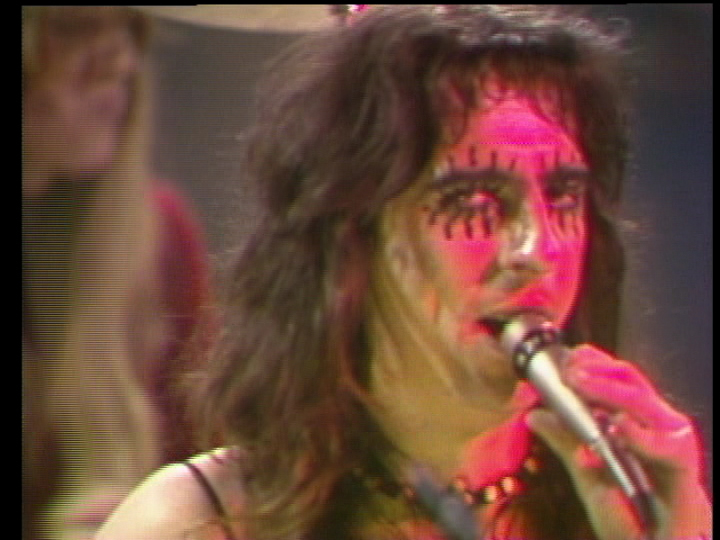


I had not saved any money for myself and Molly. I had become a part of the circus family.ĭespite my success, there was one thing that was missing. The glamour and glitz of show business was my reality. I achieved success in the entertainment industry. I had a hope and a plan to come back to her soon. There was someone special in my life whom I longed to be with. I aimed to be successful and independent. I sought after the novelty and excitement of the circus life. In my youth, I had a desire to venture out and experience the world. In the end, he realizes that he needs to honor his promise to Molly and go back to her. Her letters remind him of who he is and what's important to him. Molly becomes his anchor, the one constant in his life that he can rely on. The circus, with its superficiality and transience, is a place where he can hide from his problems, but it's also lonely. The singer leaves behind everything he knows to chase after fame and fortune, but despite his success, he realizes that he's not fulfilled. The song is a reflection on how chasing one's dreams can lead to unintended consequences. The ink is fading, and the pages are turning yellow, but he vows to keep his promise to her. The singer is left with nothing but the letters he receives from Molly, which he treasures. The circus, with its bright lights and greasepaint smiles, is a place where one can hide their soul. Despite making it big in show business, he realizes that he hasn't saved a penny for her. He recorded a lot through the entire ’70s, totaling almost ten albums, but wasn’t noticed from on record for pretty much twenty years before rising with a fresh record in the past due ’90s.The song "Molly" by Biff Rose tells the story of a young man who runs away from home to join the circus, hoping to make enough money to be with his love, Molly.
#BIFF ROSE TO BABY TV#
Rose attained some renown in the past due ’60s via network tv appearances, especially on Johnny Carson’s present, but was hardly ever greater than a cult musician so far as offering records proceeded to go. Rose’s Part, however, it appears an inescapable summary that Bowie will need to have liked the record and performed it repeatedly, a lot do a few of its factors (specially the moving piano agreements and chipper orchestration) resemble the creation utilized on Hunky Dory. Hearing the 1968 Rose LP The Thorn in Mrs. Certainly, fairly few Bowie enthusiasts would appreciate Rose’s albums.
#BIFF ROSE TO BABY PLUS#
Background gives particular molds and stances to performers that might not really become 100-percent accurate, plus some Bowie followers, in addition to critics who’ve regarded as his early function unremittingly hip and cutting-edge, could find the idea - an effete musical satirist such as for example Rose affected Bowie’s function - undesirable. Bowie, needless to say, was a far greater singer along with a very much harder rocker. There may be without doubt that Rose affected Bowie’s early-’70s function, especially Hunky Dory, which owed something to Rose’s early albums in both quasi-musical piano designs and thorny-rose lyrics.

#BIFF ROSE TO BABY FREE#
When he sang about flowery like and idyllic free of charge living, there have been sarcastic and ironic undercurrents that produced him hard to consider seriously at exactly the same time, the words had been too much out for him to obtain approved by Broadway or the simple listening pop marketplace. But adhere to composing, we’ll get another person to sing them.” Lyrically, he was another tale, with an arch and whimsical firmness that both shown and mocked the counterculture. They were delivered inside a whiney tone of voice that managed to get an easy task to envision moments of cigar-chomping Tin Skillet Alley publishers informing him, “We like your tunes, kid. Bowie also protected another music from that recording, “Hype the Fuzz,” in live shows (it could be heard on the 1970 bootleg), and Tiny Tim do “Fill up Your Center” within the B-side of “Tiptoe With the Tulips.” Musically, Rose was securely within the pre-World Battle II camp, sounding just like a Broadway songwriter along with his jaunty piano and bouncy singalong melodies.

If he’s appreciated by rock and roll audiences in any way, it is because David Bowie protected a Rose melody - “Fill up Your Center” (co-written by Rose and Paul Williams), from Rose’s 1968 debut record - on Hunky Dory. It is not quite accurate to contact him a rock and roll musician, but he ties in rock and roll about in addition to somewhere else. An unusual and goofy singer/songwriter who didn’t easily fit into any comfortable specific niche market when he emerged in the later 1960s, New Orleans pianist Biff Rose was such as a vaudeville entertainer reincarnated being a spacy hippie.


 0 kommentar(er)
0 kommentar(er)
